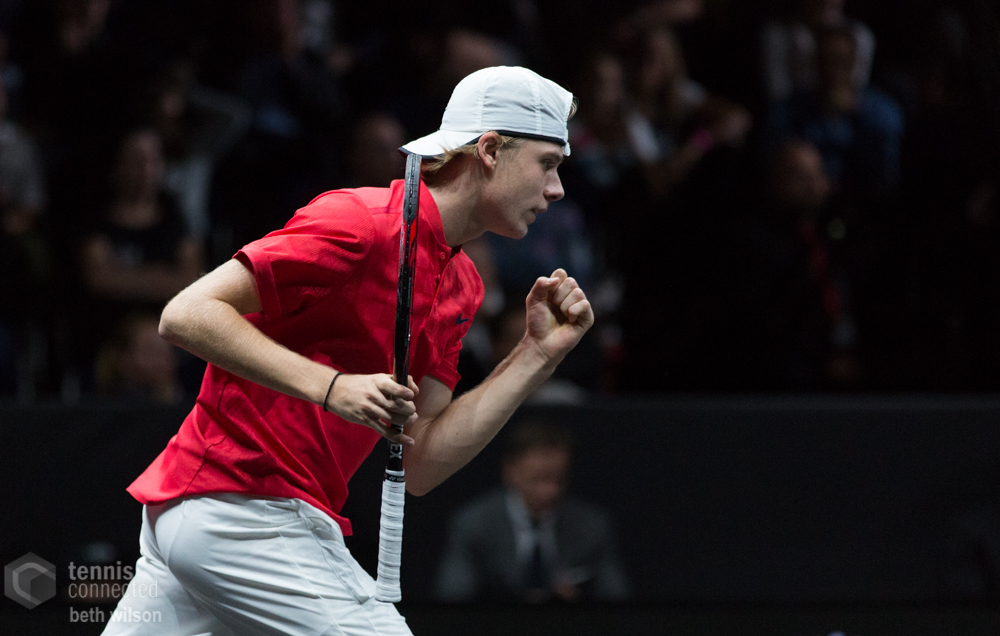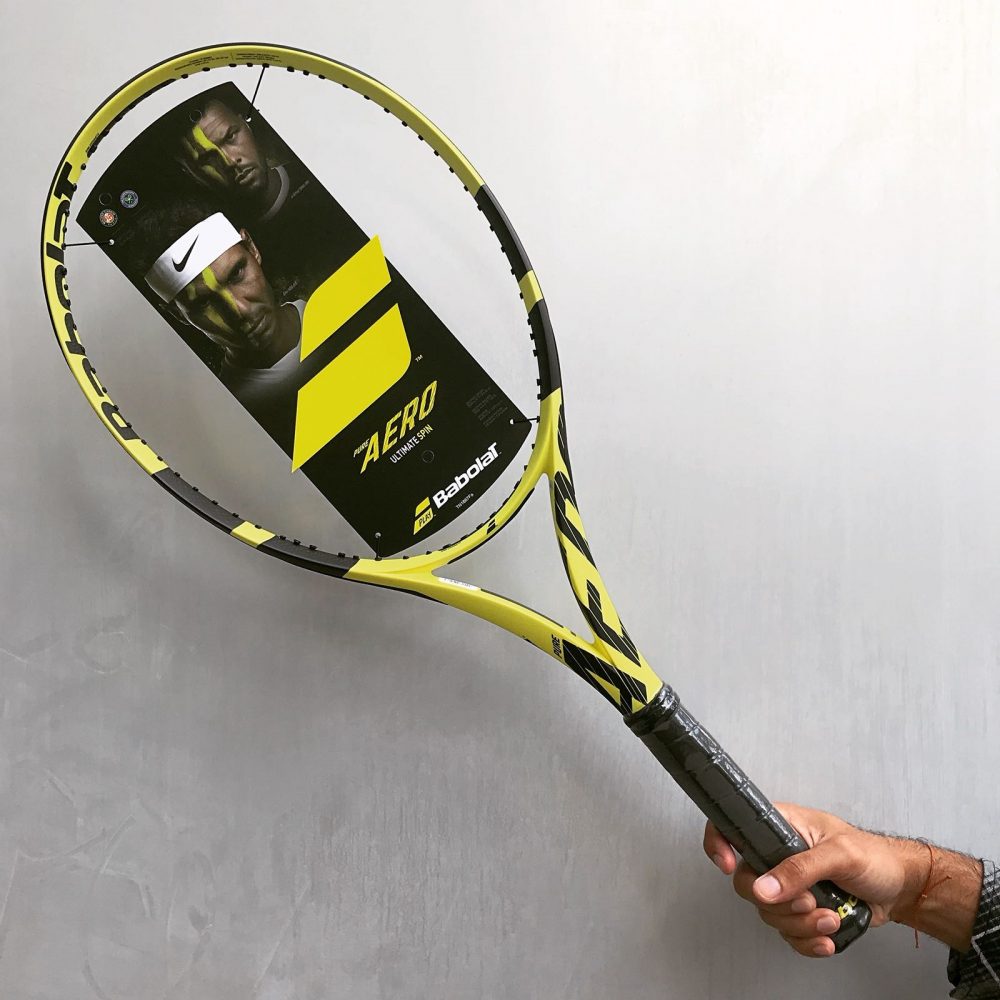Welcome to Tennis Elbow, the column that looks back on the week that was in the world of tennis. This week, Charles Blouin-Gascon previews the 2018 men’s hard court season in some way.
He’s a household name now, but it’s easy to forget that just a year ago the tennis world had little to no clue who Denis Shapovalov was.
Oh sure maybe the name rang a bell for the few diehards and/or Canadians, and maybe a couple of you reading knew of Shapovalov as the No. 2 junior player in the world after a French Open semifinal and a Wimbledon title in the 2016 juniors season.
But really, there’s a reason why it felt like the then-18-year-old Canadian took the tennis world by surprise when he reached the 2017 Rogers Cup semifinal in beating Juan Martin del Potro and Rafael Nadal: it’s because he really did. We had no clue who this blond kid was and suddenly there he was in the semifinal of a Masters 1000. From there, Shapovalov went on to qualify for the US Open main draw and make the fourth round, beating Jo-Wilfried Tsonga in the process.
#ShapoSeason was unlike what tennis had accustomed us to in recent years mostly because it was an unexpected breath of fresh air in a sport that hasn’t had many of these over the previous fifteen or so years. (Because that’s the dirty little secret about the golden era of men’s tennis: for all its excellence, there’s been little to no surprise. If that’s us being nitpicky, then so be it—but let’s not digress.)
In the year since, Shapovalov has become the youngest player to be ranked in the ATP World Tour Top 30 since 2005. He’s elicited comparison to another youngster, this one who predates Shapo by a few years and who actually is the one to have stopped the wunderkind last year in Montreal.
So why not make the comparison and see how Shapovalov stacks up against Alexander Zverev?
Alexander Zverev
-Nationality: German
-Age: 21
-Ranking: No. 3
-Career titles: 8
-Career record: 153-81
Pros
Though he’s turned pro a long time ago in 2013 and at the age of 16, Zverev only entered our collective consciousness since winning the ATP Star Of Tomorrow Award in 2015. Already with eight career titles and with over $11 million in prize money, he’s maximized his short time at the top with a trio of titles in the Masters 1000 series.
Zverev is a tall and multipurpose baseline talent equally adept on the hard and clay courts. He has a massive first and second serves and a heavy two-handed backhand and uses an even-keeled demeanour to remain in the moment. The 21-year-old is fine trading blows from deep as well as jumping on the offensive when it’s time to do that.
Cons
You don’t get as high as No. 3 in the world if you have many kinks in your armour, and that’s definitely the case for Zverev—but look into the microscope and you’ll see the faults. The German doesn’t always have a consistent and reliable net game and lacks a parallel forehand that’s on par with some of the best strokes on tour.
But if we’re trying to anticipate his entire career, what is most worrisome is how little success Zverev has enjoyed on tennis’s biggest stages. Other than a fourth-round berth a year ago at Wimbledon, his career is filled with first-, second- and third-round exits at Grand Slam tournaments. And maybe he qualified for the 2017 ATP World Tour Finals last season, but he went 1-2 and bowed out in round robin.
It doesn’t have to be a bad thing, not necessarily. But in a sport where success on the grandest stages is a must, Zverev has to be knocked down a few pegs.
Denis Shapovalov
-Nationality: Canadian
-Age: 19
-Ranking: No. 27
-Career titles: 0
-Career record: 34-32
Pros
It’s really somewhat silly to try to envision how the next X years of Denis Shapovalov’s career might unfold when he’s played a whopping 66 matches, but here we are.
In his short time since turning pro, Shapovalov has demonstrated a flair for the theatrics and entertaining and proven that no moment is too big for him; take a look at his activity page on the ATP website and you see the results of someone who’s barely, if ever, overwhelmed. The 19-year-old is either wise beyond his years or too young to fully grasp what a win over Tsonga means, but in both cases it’s given him a willingness to take matches to his opponents and for the most part be the aggressor.
He has a well-rounded game that works even on clay, his worst surface, and should only get better from here. Most of all, he plays with a boundless energy that’s contagious to anyone who watches: if the results come, so will the fans.
Cons
At this point, there’s very little that we know about Shapovalov because he’s still more potential than results—even now, ranked No. 27 in the world. We don’t really know how he’ll react when he has points and performances to defend from a previous season because, well, he’s never had to defend these. What we know for sure is he’s come a long way since his Davis Cup snafu and never beats himself up.
At this point, Shapo needs match experience and though he is the youngest member of the Top 30, his results against the very very best, his Montreal win over Nadal notwithstanding, suggest that if there are levels to this then he is not at the top one yet.
Verdict
As you may know, we’re already on the record as being on the fence of the Zverev hype train but still: right now, the nod has to go to the German. He’s two years older, more experienced and with a proven track record. Sure, he hasn’t done much at the Grand Slam tournaments, but he’s still ranked No. 3 in the world.
But in two years? Who knows 😉
Follow Charles Blouin-Gascon on Twitter @RealCBG






















